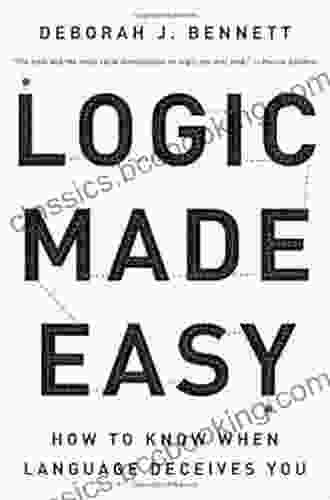Systems Thinking for Social Change: A Comprehensive Guide to Using Systems Theory to Create Positive Impact

As we navigate an increasingly complex and interconnected world, the need to address social issues systemically becomes paramount. Systems thinking, a powerful analytical framework, provides a holistic lens to understand and intervene in the intricate web of factors that shape societal challenges. Through this comprehensive guide, "Systems Thinking for Social Change," you will embark on a transformative journey to learn how to apply systems theory to create positive social impact.
Social systems, such as healthcare, education, and criminal justice, are intricate networks of human interaction, policies, and institutions. These systems are dynamic, nonlinear, and subject to a myriad of internal and external influences. Understanding the interconnectedness and interdependence of these elements is crucial for addressing complex problems.
Systems thinking offers a way to navigate this complexity by examining the relationships between components and the overall behavior of the system. It helps identify feedback loops, leverage points, and potential unintended consequences of interventions. This knowledge empowers change agents to make informed decisions and implement interventions that create lasting positive change.
4.6 out of 5
| Language | : | English |
| File size | : | 6787 KB |
| Text-to-Speech | : | Enabled |
| Screen Reader | : | Supported |
| Enhanced typesetting | : | Enabled |
| Word Wise | : | Enabled |
| Print length | : | 228 pages |
A central tenet of systems thinking is the understanding that no single element in a system can be fully understood in isolation. Instead, it is through the lens of the entire system that the true nature of its components becomes apparent.
This holistic perspective shifts the focus from individual interventions to examining the broader context within which they occur. By considering the interactions and interconnectedness of various factors, practitioners can design interventions that address the root causes of social problems and promote sustainable change.
- Feedback loops: Circular relationships between elements within a system that can either reinforce or balance outcomes.
- Leverage points: Key elements or points in a system where small interventions can create disproportionately large effects.
- Dynamic equilibrium: The state where a system maintains balance despite continuous change and fluctuations.
- Path dependencies: The way in which past decisions and actions shape the future trajectory of a system.
- System archetypes: Recurring patterns of behavior that emerge in various systems, providing insights into common challenges and potential solutions.
The principles of systems thinking have been successfully applied to address a wide range of social issues:
- Healthcare: Improving access to quality healthcare services, reducing healthcare disparities, and promoting disease prevention.
- Education: Transforming educational systems to enhance student engagement, increase learning outcomes, and address achievement gaps.
- Criminal justice: Reforming criminal justice practices, reducing recidivism, and promoting restorative justice.
- Environmental sustainability: Tackling climate change, preserving biodiversity, and promoting sustainable practices.
- Poverty alleviation: Empowering individuals and communities to overcome poverty, improve livelihoods, and achieve economic stability.
- Define the problem: Clearly articulate the social issue you aim to address and identify its root causes.
- Map the system: Identify the key elements, relationships, and feedback loops within the system.
- Analyze the system: Use systems thinking tools to understand the dynamic behavior of the system and identify points of leverage.
- Develop interventions: Design interventions that address the root causes of the problem and leverage key points.
- Implement and monitor: Implement interventions in a phased manner and monitor their impact to adjust as needed.
- Evaluate and adapt: Continuously evaluate the effectiveness of interventions and adapt them based on feedback and changing conditions.
This guide provides numerous case studies and examples of successful applications of systems thinking to social change. These real-world examples demonstrate how principles and frameworks can be effectively implemented to create positive impact.
Harnessing the power of systems thinking empowers individuals and organizations to tackle complex social issues and create lasting change. Through a holistic perspective and a structured approach, practitioners can navigate the complexities of social systems, identify root causes, and design interventions that address the underlying dynamics.
"Systems Thinking for Social Change" is your comprehensive guide to using this transformative framework to make a positive impact. By embracing the principles and methods outlined in this book, you can contribute to a more equitable, sustainable, and just society. Join the movement and become an effective agent of social change today!
4.6 out of 5
| Language | : | English |
| File size | : | 6787 KB |
| Text-to-Speech | : | Enabled |
| Screen Reader | : | Supported |
| Enhanced typesetting | : | Enabled |
| Word Wise | : | Enabled |
| Print length | : | 228 pages |
Do you want to contribute by writing guest posts on this blog?
Please contact us and send us a resume of previous articles that you have written.
 Book
Book Novel
Novel Page
Page Chapter
Chapter Text
Text Story
Story Genre
Genre Reader
Reader Library
Library Paperback
Paperback E-book
E-book Magazine
Magazine Newspaper
Newspaper Paragraph
Paragraph Sentence
Sentence Bookmark
Bookmark Shelf
Shelf Glossary
Glossary Bibliography
Bibliography Foreword
Foreword Preface
Preface Synopsis
Synopsis Annotation
Annotation Footnote
Footnote Manuscript
Manuscript Scroll
Scroll Codex
Codex Tome
Tome Bestseller
Bestseller Classics
Classics Library card
Library card Narrative
Narrative Biography
Biography Autobiography
Autobiography Memoir
Memoir Reference
Reference Encyclopedia
Encyclopedia Daniel Putkowski
Daniel Putkowski David Stuart
David Stuart David Conyers
David Conyers David Dalglish
David Dalglish Deborah Burger
Deborah Burger David Elwyn Morris
David Elwyn Morris Deborah Amaral
Deborah Amaral David B Frisk
David B Frisk Danny Staple
Danny Staple David Hancock
David Hancock David Olsen
David Olsen Dave Stockton
Dave Stockton Dawn M Mcbride
Dawn M Mcbride Deb Spera
Deb Spera Dave Chambers
Dave Chambers Daron Acemoglu
Daron Acemoglu Darktechnomancer
Darktechnomancer Dave Von Drehle
Dave Von Drehle Danny Orbach
Danny Orbach David Mack
David Mack
Light bulbAdvertise smarter! Our strategic ad space ensures maximum exposure. Reserve your spot today!

 Aldous HuxleyKatharine Graham: The Unlikely Leader Who Reshaped The Washington Post Empire
Aldous HuxleyKatharine Graham: The Unlikely Leader Who Reshaped The Washington Post Empire
 Elias MitchellThe Inspiring Story of Ben Hogan's Amazing Comeback and Victory at the 1950...
Elias MitchellThe Inspiring Story of Ben Hogan's Amazing Comeback and Victory at the 1950...
 Dawson ReedThe Celebrated Jumping Frog of Calaveras County: A Literary Leap into Animal...
Dawson ReedThe Celebrated Jumping Frog of Calaveras County: A Literary Leap into Animal...
 Ken SimmonsUnlocking the Potential: A Comprehensive Guide to Raising Smart, Successful...
Ken SimmonsUnlocking the Potential: A Comprehensive Guide to Raising Smart, Successful...
 Duncan CoxBuilding a Solid Foundation for Self Defense Using Pistol: Your Comprehensive...
Duncan CoxBuilding a Solid Foundation for Self Defense Using Pistol: Your Comprehensive... Hugo CoxFollow ·8.5k
Hugo CoxFollow ·8.5k Graham BlairFollow ·17.5k
Graham BlairFollow ·17.5k Samuel Taylor ColeridgeFollow ·5.6k
Samuel Taylor ColeridgeFollow ·5.6k Ken FollettFollow ·11.1k
Ken FollettFollow ·11.1k Xavier BellFollow ·4.2k
Xavier BellFollow ·4.2k Henry HayesFollow ·19.5k
Henry HayesFollow ·19.5k Deacon BellFollow ·19k
Deacon BellFollow ·19k Cristian CoxFollow ·14.3k
Cristian CoxFollow ·14.3k

 Cameron Reed
Cameron ReedHow to Know When Language Deceives You
Unmasking the Power of...

 Robbie Carter
Robbie Carter50 Things To Know About Planning Home Schooling...
: The Power of Hands-On Learning Embarking...

 Julio Cortázar
Julio CortázarCalculus: Single and Multivariable, 8th Edition — The...
Calculus is the...

 Jaime Mitchell
Jaime MitchellBunnicula and Friends: A Spooktacular Tale of Mystery and...
In the quaint little town of Celeryville,...

 Josh Carter
Josh CarterPeppa Easter Egg Hunt: Join Peppa Pig on an...
Get ready for...

 Donovan Carter
Donovan CarterBoy Called Dickens: A Journey into the Childhood of a...
Delving into the...
4.6 out of 5
| Language | : | English |
| File size | : | 6787 KB |
| Text-to-Speech | : | Enabled |
| Screen Reader | : | Supported |
| Enhanced typesetting | : | Enabled |
| Word Wise | : | Enabled |
| Print length | : | 228 pages |


